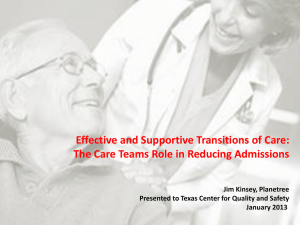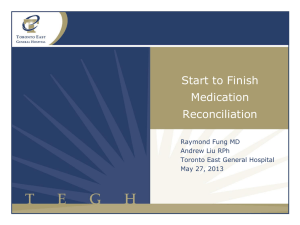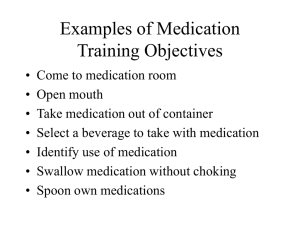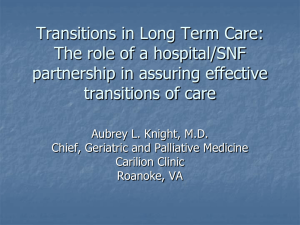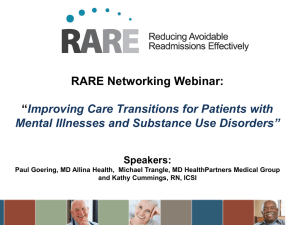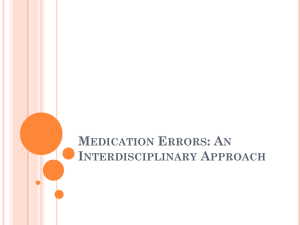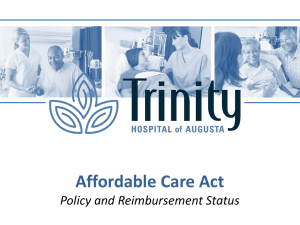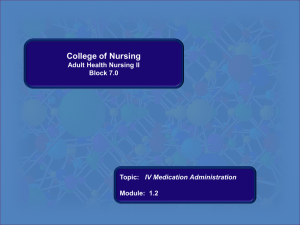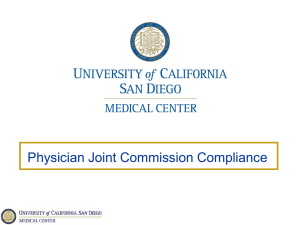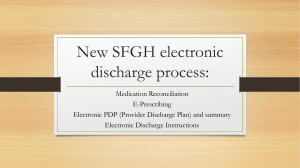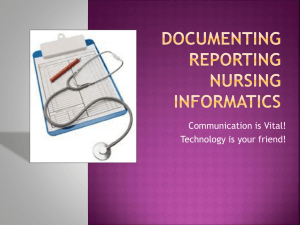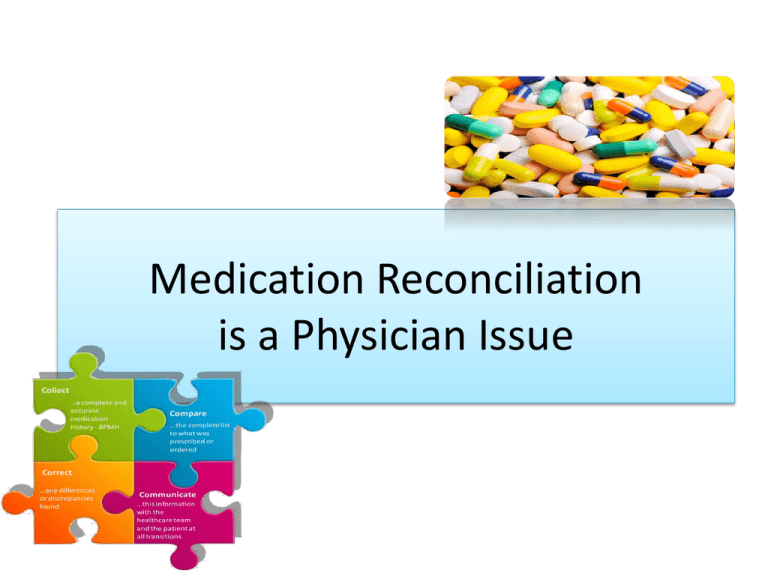
Medication Reconciliation
is a Physician Issue
What is Medication Reconciliation?
In acute care…
1. Creating the list of medications your patient
is on at home.
2. Accounting for each home medication when
the patient enters the episode of care.
3. Communicating the discharge medication list
and why there are changes from the home
medication list.
Medico-legal Precedents
*2013 CMPA educational publication
Evidence in the Literature
Admission
Acute Care
ICU
Transfer
Discharge
(Etchells et al.)
(Norton et al.)
(Donchin et al,
Critical Care
Med 1995)
(LEE et al, Ann
Pharmacother.
2010)
(Forster et al,
CMAJ 2004)
- Errors in
medications 54%
- Canadian
Adverse Events
Study:
- 1.7 errors per
patient per
day in ICU
- 62% of patients
had errors on
transfer
- 1 in 9 patients
are potentially
given the wrong
medication or
wrong dose.
- 40% with
potential for
serious harm
- 36% with potential
for serious harm
mostly omitted
meds
- 56% of patients
discharged had
adverse drug
events; Harm
ranged:
- 68% only
symptoms
- 6%with
permanent
disability or
death
- 40% potential
serious harm
- Biggest
contributing
factor: lack of a
BPMH (best
possible
medication
history)
- In 50% of cases
the adverse
event was either
preventable or
ameliorable
Why is this not being done on SCM or
Netcare?
• Current SCM cannot create a functional home
medication list…. yet.
• The pharmacy uploads to Netcare are NOT
proper medication lists (and never will be).
They reflect medications dispensed, not
medications taken – this can only obtained
though history.
• Med Rec can get on Netcare using your
discharge summary.
BPMH
ADMISSION
DISCHARGE
TRANSITION
TRANSITIONS
OF CARE
OF CARE
(transfer)
(transfer)
Complete
“Medication
Complete
“Medication
Reconciliation
at
Transitions
Reconciliation at
Transitions of
of Care”
report
from
SCM
Care” report from
SCM
MedRec Transitions of Care Report in SCM
Eg: transfer from surg to hospitalist
Transferring doctor
to compare these
meds with the
home med list and
document reasons
for any changes.
Transferring doctor to handwrite any
medications that appear on the BPMH that
do not appear on this list and document
reasons for omission.
MedRec Transitions of Care Report in SCM
A Medication Reconciliation at Transitions of Care report has
been developed in the current 5.0 version of SCM
Discharge – 3 Ways to do a Summary
1. SCM discharge summary – compare current
meds to the home med list (BPMH), and type
the reasons for changes into the white box
below the med list.
2. Dictated discharge summary – same as above,
but after dictating the meds for discharge,
dictate the reasons for changes from the home
med list.
3. Handwritten – Do Med Rec on the Form. In your
discharge order, request the form be
photocopied and faxed to the family doctor.
Discharge
Roll out of MedRec in Acute Care
PLC Nov. 26, 2013
FMC Jan 20, 2014
ACH Dec 9, 2013
RGH Nov/Dec, 2013
SHC Sept, 2013
Medication Reconciliation
Outpatient clinics
• Implementation is required by Dec, 2015
• In development….
What about patient or community
pharmacist involvement?
Patients:
• A resource developed by the HQCA is available
in print, and on the AHS website.
Pharmacists:
• There is a fee code for doing a patient
interview and creating a medication list.
Currently it requires a phone call to the
pharmacist to obtain this list, if it is done.
Calgary Zone Project Team
•
•
•
•
•
•
•
Lynn Whitten, Project Manager:
403-909-9894
Dr. Echo Enns, Physician Lead:
403-616-0844
Nancy Hoeght, Project Coordinator:
403-619-5975
Mandy McCabe, Project Coordinator:
403-605-7190
Kathy Lee, Pharmacy Consultant:
403-943-3877
Alim Amershi, Project Coordinator (data):
403-615-4739
Main Number - Administrative Assistant:
403 943-3532
In site Web Pages
MedRec - http://insite.albertahealthservices.ca/5713.asp
Elearning modules - http://insite.albertahealthservices.ca/8740.asp
Accreditation - http://insite.albertahealthservices.ca/4086.asp
Discharge
Why MedRec?
Identified by AHS as a major patient safety initiative
An Accreditation Canada Required Organizational
Practice
Identified by the World Health Organization as one
of the top 5 priorities , “the High Fives Project”
Med Rec will be integrated into all AHS clinical service
delivery areas by Dec 2015
The Solution on Admission to Acute Care:
Med Rec is where we take this…
and before you know it, this!
and turn it into this…
(for now…)

